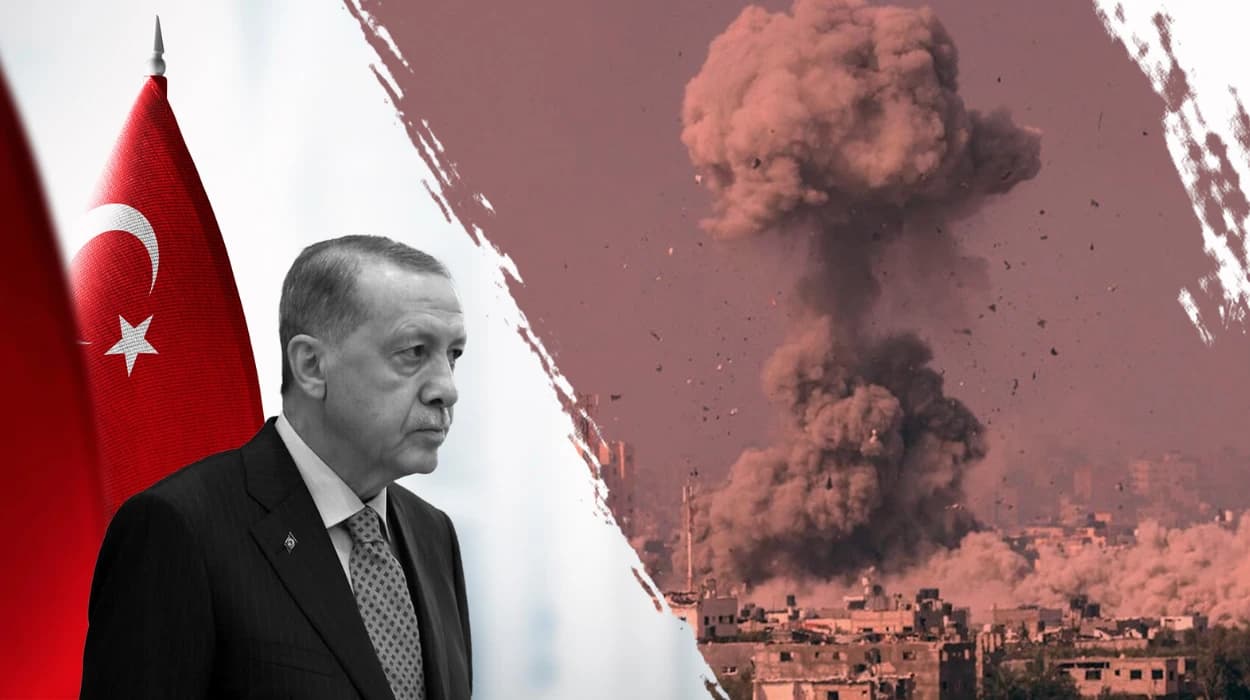Turkey played a significant role in mediating the recent
Gaza ceasefire agreement, joining forces with Qatar, Egypt, and the US to
foster peace between Hamas and Israel. Turkish President Recep Tayyip Erdogan
and officials expressed satisfaction with the ceasefire deal and pledged to
monitor its implementation closely, continuing humanitarian aid and supporting
reconstruction efforts in Gaza.
Turkey’s Role in the Gaza Ceasefire Negotiations
As reported by Tuvan Gumrukcu and Jonathan Spicer for Yahoo
News, Turkey emerged as a key player in the Gaza ceasefire negotiations held in
Egypt, where Turkish intelligence chief Ibrahim Kalin participated alongside
US, Egyptian, and Qatari mediators. This marks the first official involvement of
Turkey in these Israel-Hamas talks, a move that gained significant attention
due to Turkey's influence over Hamas and its direct dialogue with Israeli
security officials despite the absence of formal diplomatic relations.
According to Reuters, President Recep Tayyip Erdogan communicated his strong satisfaction with the agreement reached between Hamas and Israel in Sharm el-Sheikh, highlighting Turkey's contributions to the process. Erdogan stated on X that he was "very pleased" with the ceasefire that ended two years of conflict and expressed Turkey’s commitment to closely monitor the strict enforcement of the agreement as well as its ongoing support for the peace process. Erdogan also credited US President Donald Trump for his
“political will to motivate the Israeli government towards the ceasefire,”
as well as the mediation efforts of Qatar and Egypt.
Official Turkish Statements and Commitment
The Turkish Foreign Ministry issued a statement welcoming
the ceasefire and stressing the urgent need for humanitarian aid delivery and
reconstruction efforts in Gaza, which has suffered a severe humanitarian crisis
over the past two years. The ministry underscored that this ceasefire should
bring an end to the ongoing violence described as genocide and expressed hope
that these developments would pave the way for a two-state solution, affirming
Turkey’s long-standing support for Palestinian statehood based on 1967 borders
with East Jerusalem as the capital.
Vice President Cevdet Yilmaz also publicly welcomed the ceasefire
deal on Turkish social media platform NSosyal, describing the agreement as
"long overdue" and praising all parties involved, particularly
President Erdogan. Yilmaz emphasized that Türkiye would continue supporting the
Palestinian people with humanitarian aid and reconstruction, noting the
ceasefire’s potential to usher Gaza into a new era of stability and peace.
International and Regional Mediation Efforts
The ceasefire negotiations in Egypt involved multiple
international stakeholders, including prominent involvement from Qatar, the US,
Egypt, and Turkey as guarantors of the deal. According to a briefing by Reuters
and reports from The Jerusalem Post, these parties played crucial roles in
facilitating the first phase of US President Donald Trump's 20-point Gaza peace
plan, which includes a phased Israeli troop withdrawal and the release of
hostages held by Hamas.
Turkish officials conveyed to their American counterparts
that they had made contact with Hamas groups holding Israeli hostages, which
had previously been unreachable, adding to Turkey’s leverage in ongoing
negotiations. This development was underscored by a senior US official’s
optimism about a forthcoming agreement and described the mood as “cautiously
optimistic” regarding the current ceasefire talks.
Following the ceasefire, Turkey intends to closely monitor
the agreement’s implementation in Gaza, ensuring that the truce holds and that
humanitarian aid access and reconstruction efforts proceed without delay. The
Turkish Foreign Ministry and government officials reaffirmed their pledge to be
actively involved in the implementation phases and to sustain political support
for the wider peace process.
Erdogan reiterated Turkey’s vision of a sovereign Palestinian state and a just resolution to the Israeli-Palestinian conflict as essential to achieving lasting security and peace in the region. He also expressed solidarity with Palestinians who have endured significant suffering during the conflict’s two-year span.
